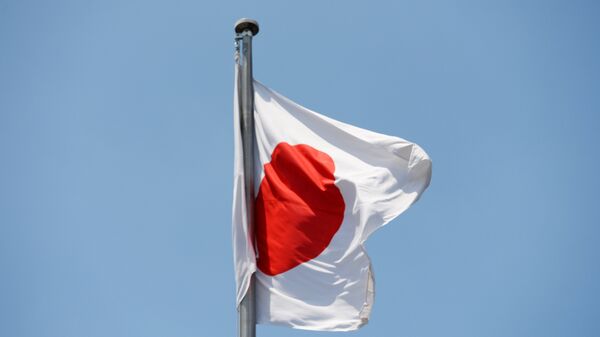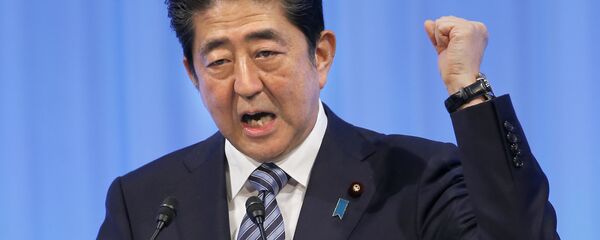Kristian Rouz — The Japanese government says the nation's economy grew quicker in the first quarter than estimated previously due to stronger business spending. However, experts and investors remain cautious as international trade tensions still pose a threat to the export-driven Japanese manufacturing sector, which remains the key driving force behind Japan's economy.
According to a report by Japan's Cabinet Office, released on Monday, the island nation's GDP expanded 2.2 percent in 1Q19 compared to a previous reading of 2.1 percent. Although the pace of expansion was solid enough in its initial reading, the latest upward revision is fuelling expectations that a sales tax hike will be introduced later this year.
Tighter fiscal policies in Japan and the spillover effects of possible disruptions in trading relations between Mainland China and the US could weigh on Japan's economic expansion later in the year, economists say.
"With growth remaining positive, at least in the headlines, any market expectations for another delay of the consumption tax hike could remain subdued," Kazuma Maeda of British bank Barclays Plc said.
Experts believe Japan could get a major boost to its economic expansion if it strikes a free trade deal with the US this year, but talks have progressed slowly so far, as the US remains focused on China.
Reports of a breakdown in the US-China talks in April are hardly good news for Japan.
"We have yet to see data reflecting the recent heightening of Sino-US tensions," Mari Iwashita of Tokyo-based Daiwa Securities said. "We see high probability of downside risks ahead."
READ MORE: Trump Becomes First Foreign Leader to Meet Japan's New Emperor
Meanwhile, Prime Minister Shinzo Abe says he is still planning to raise sales tax from 8 percent to 10 percent later in the year. Tighter fiscal policies could help offset the negative effects of the negative interest rate policy (NIRP) of the Bank of Japan (BOJ), the latter has said.
However, economists are questioning the planned move, suggesting a higher sales tax could hurt consumer demand at a critical moment — as international trade links could become weaker, and foreign demand for Japanese goods could decline later this year.
"Although capital spending was revised up, it is expected to deteriorate as foreign demand continues to weaken due to the US-China trade tensions," Hiroaki Mutou of the Tokai Tokyo Research Institute said.
Japan's capital spending (capex), a key measure of business investment, increased 0.3 percent quarter-on-quarter in 1Q19 — compared to an earlier estimate of a 0.3-percent decline, but still below the 0.5-percent increase expected previously.
On a quarterly basis, Japan's 2.2-percent annual expansion translates into 0.6-percent quarter-on-quarter growth. The figure is seen as encouraging for a nation which has been battered by decades of disinflation and stagnation. However, some experts say Japan could perform better.
"Consumer spending remains weak as wages have not risen as previously expected. If external demand worsens further, it could dampen both corporate and consumer sentiment and rein in their spending," Tokai's Mutou says.
Economists believe Japan should postpone the sales tax hike, and keep its monetary policies steady until there is more clarity on the international trade front. However, Japanese officials believe a recent trade deal with the EU, and an agreement to boost bilateral cooperation with China could support national exports in the near-term. Nevertheless, the US market remains Japan's key trade priority.


